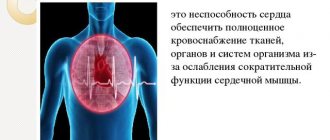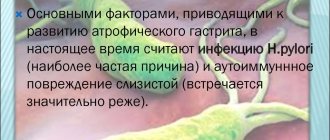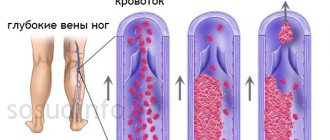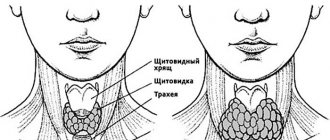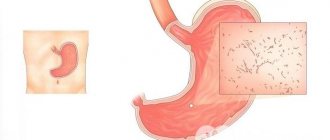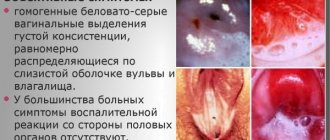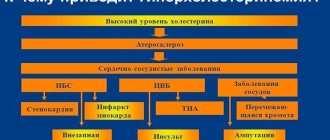What is gastric cardia insufficiency?
Chalazia is a non-closure or partial closure of the sphincter (a kind of valve that separates the stomach from the esophagus). The cardiac sphincter acts as the anatomical end of the pharynx. Its purpose is to ensure the movement of food, block the retrograde release of gastric juice and prevent irritation of the mucous membrane.
Under the influence of external and internal damaging factors, the sphincter may not close completely, which causes the development of reflux (movement of juice into the esophagus, which, in turn, provokes irritation, inflammation of the mucous membrane, and contributes to the development of pathology such as esophagitis).
Severity of defeat
The extent of damage to the lower esophageal sphincter can only be accurately determined by endoscopic examination - fibrogastroscopy. Despite the unpleasantness of the procedure, when making a diagnosis it will provide maximum information to both the doctor and the patient.
Based on visual signs, three degrees of damage to the cardia are distinguished.
- First degree failure. The cardia is mobile, but does not close completely. The unclosed space is up to 1/3 of the sphincter diameter. In patients, as a rule, it manifests itself with frequent air belches.
- Insufficiency of the second degree. The sphincter closes to half its diameter. In some cases, protrusion of the gastric mucosa into the esophageal cavity occurs. Patients, in this case, complain of frequent and painful belching.
- The most severe cardia insufficiency is the third degree. There is no valve closure at all. An endoscopist may detect signs of esophagitis.
https://youtu.be/oDqdNInjRJU
Symptoms of the disease
Signs of cardiac failure depend on its severity. Initially they are weak and blurry. They are most pronounced when the pathology reaches stage 3. The characteristic symptoms are as follows:
- Belching.
- Cutting pain in the throat, heartburn.
- Discomfort in the abdomen.
- Weakness, dizziness, especially during physical activity.
- Unpleasant sour or bitter taste in the mouth.
- Nausea, urge to vomit.
- Pain behind the sternum.
- Rumbling in the intestines.
But the main symptom of the pathology is still constant heartburn. It is a direct indication for differential diagnosis.
Causes
Cardia insufficiency is a polyetiological disease, which in most cases develops for several reasons:
- Excess weight or obesity, affecting the functional state of internal organs.
- Non-compliance with diet, constant overeating, especially at night.
- Chronic diseases of the gastrointestinal tract - stomach, intestines (gastritis, bulbitis, ulcers, high acidity, polyps).
- Lack of physical activity and sedentary lifestyle. Or, conversely, constant loads, heavy lifting.
- Surgery to remove (resection) the valve.
- Spasm of the pylorus - the sphincter, which is located at the other end of the stomach.
Cardia rosette insufficiency can also be congenital. This is due to the underdevelopment of certain cells.
Etiology
Cardia insufficiency develops in the human body for several reasons:
- obesity;
- binge eating;
- violation of the optimal diet;
- bad habit of eating a lot of food at night;
- chronic stomach diseases - tumor formations, ulcers, gastritis or muscle hypertonicity;
- decreased immunity;
- grasping hernia;
- passive lifestyle;
- spasm of the pylorus (sphincter);
- constant physical activity;
- previous operations, during which the cardiac sphincter was removed according to indications.
All these negative factors lead to the fact that the cardia of the stomach does not close enough and provokes the development of complications. Timely treatment of gastric cardia insufficiency will make it possible to prevent the occurrence of dangerous pathologies in the future.
Degrees of the disease
The pathology may stop developing at the initial stage or constantly progress. Therefore, during diagnosis and before prescribing treatment, the extent of the disease should be established:
- 1 – the valve does not close 1/3. This causes mild discomfort, expressed in frequent belching and occasional heartburn;
- 2 – opening of the sphincter by ½. Symptoms are more pronounced;
- 3 – non-closing 100%. Peristalsis of the esophagus is not impaired, the mucous membrane is irritated and inflamed.
Doctors recommend not waiting until the disease reaches stage 3. If the first symptoms of pathology occur, you should seek the advice of a specialist.
Treatment
Once the disease is detected and its severity is established, measures must be taken to eliminate it. The main methods of therapy should be aimed at achieving the following goals:
- Eradication of the disease.
- Decrease in intra-abdominal pressure in the gastrointestinal tract.
- Reduction in severity or complete elimination of clinical symptoms.
- Regulation of cardia function.
If the condition is advanced, measures can be taken to reduce the risk of esophageal tumors. Treatment includes taking pharmacological agents, using traditional medicine, diet and lifestyle changes. In severe cases, surgery may be necessary.
Medicines
Antacids are drugs that are widely used if symptomatic treatment of cardia failure is required. They help reduce the acidity of gastric contents. The most famous of them are Almagel and Ranitidine.
Alginates are also prescribed to eliminate symptoms of cardia dysfunction. These drugs prevent the development of reflux. From this pharmacological group, Gaviscon and Laminal are often prescribed.
You also need to take:
- Tablets or solutions that promote healing and regeneration of the mucous membranes of the gastrointestinal tract. This is, for example, Omeprazole.
- Drugs that prevent vomiting – “Regidron”.
- Adsorbents – activated carbon.
- Analgesics and painkillers – “Solpadeine”.
- Antibiotics are sometimes prescribed to treat infectious and inflammatory concomitant pathologies.
Before taking any medications, you should consult your doctor. This will help clarify the issue of contraindications, side effects and complications. And also ensure the completeness and correctness of therapeutic measures.
Folk remedies
It is advisable to use “grandmother’s” methods as auxiliary methods in the complex treatment of the disease. This means that on their own they may not be effective. Useful to use:
- Decoctions of medicinal herbs - fennel, dill.
- Potato, cabbage juice and aloe.
- Pharmacy collections of medicinal plants - chamomile, calendula, St. John's wort.
Calamus root, viburnum, mumiyo, and honey are also often used. It is not recommended to use soda for heartburn. It can cause severe disturbances in the functioning of the cardiovascular system. Alternative medicine methods, such as acupuncture and homeopathic medicines, will also help you recover.
Operation
In rare cases, cardia insufficiency cannot be treated with conservative methods. Then the doctor prescribes one of the types of surgical intervention:
- Vagotomy – dissection of the vagus (vagus nerve). Allows you to reduce acid production in the gastrointestinal tract.
- Fundoplication is the formation of a cuff that prevents the retrograde reflux of digestive juice.
- Pyloroplasty – expansion of the pyloric canal.
The doctor may decide to use one of these or other surgical treatment methods. It all depends on the medical history, the physiological state of the patient and the characteristics and extent of the disease.
Diet
It is necessary to monitor the diet and follow the rules of nutrition, eat the following dishes recommended by your doctor:
- Eating 5–8 times a day, in small portions.
- Constant weight control aimed at reducing it.
- You cannot eat citrus fruits and sour vegetables or drink juices or compotes.
- Eating foods (fried, spicy, salty, fatty) that disrupt the digestive process is prohibited.
- Sour dairy and cheese products should also be excluded.
- Alcohol, smoking, coffee, soda, fast food, overeating, chewing gum are not recommended.
- Products containing flour and fats should be strictly limited. These are baked goods, butter, chocolate, ice cream, candies and other sweets.
You can and should eat:
- Porridges cooked in water - buckwheat, oatmeal, rice.
- Dietary meat of animals and fish, steamed or boiled.
- Potato and vegetable puree.
- Light creamy soups.
- Bananas, corn, not sour apples.
It is recommended to drink herbal teas and medicinal mineral water without gas, which reduce acidity.
In addition to medications and diet, you need to engage in feasible physical exercises that will improve gastrointestinal motility. Going to the gym is desirable, but not necessary. It is enough to do gymnastics with an emphasis on the torso area, run, swim, do yoga.
How to treat
Once the diagnosis has been confirmed by specialists, they can decide which method of treatment will be used. Currently, this pathology is treated with medication and surgery. Also, experts do not object to the parallel use of folk recipes that can improve the condition of patients and speed up the recovery process.
When prescribing drug therapy, specialists set the following tasks:
- Eliminate the cause of the development of the pathological condition.
- Minimize the pressure placed on the gastrointestinal tract.
- Eliminate the unpleasant symptoms that accompany the pathology.
- Regulate the functioning of the gastric cardia.
To cure this disease, patients need to take special medications and also follow a strict diet. In severe cases, doctors decide to perform surgical treatment.
The following medications are prescribed to this category of patients:
- Group of antacids. It includes medications whose action is aimed at reducing the level of gastric acidity. The components present in them quickly eliminate such an unpleasant symptom as heartburn. Patients are prescribed Ranitidine tablets, as well as the coating substance Almagel.
- A group of medications whose action is aimed at accelerating regeneration processes in the mucous membranes. This category of patients is prescribed Omeprazole, Omeza, etc. tablets.
- Group of antiemetic drugs. Such drugs are prescribed when the pathology is accompanied by a gag reflex. Patients are prescribed pills
- A group of painkillers. To eliminate pain, experts prescribe Solpadeine tablets, etc.
- If the pathology of the cardiac part of the stomach is accompanied by complications in patients, then doctors may prescribe a course of antibiotics.
If a person who has been prescribed a course of drug therapy does not experience any changes for the better, the specialist will decide on surgical treatment. Currently, various types of surgical interventions are performed.
Doctors select the technique individually for each patient:
- pyloroplasty;
- fundoplication;
- vagotomy, etc.
Folk recipes
In parallel with the drug course of therapy, patients can use time-tested “old-fashioned” methods.
To eliminate unpleasant symptoms, patients can use the following recipes:
- A decoction prepared from fennel, dill or anise seeds.
- You can drink juice squeezed from the leaves of white cabbage and potato tubers. These drinks will help people get rid of heartburn.
- It is recommended to regularly drink herbal teas or a decoction made from raspberry leaves.
- You can purchase ready-made phyto-infusions from pharmacy chains, which must be brewed in accordance with the instructions.
- To normalize digestive processes, you should drink 1 tbsp daily. l. juice squeezed from plantain leaves.
Disease prevention
To reduce the likelihood of this pathology occurring, you need to take preventive measures:
- Eat correctly, on time and nutritiously. Limit consumption of alcohol, coffee, soda.
- Lead an active lifestyle, but avoid overexertion.
- Drink a lot of warm water - 1 glass in the morning on an empty stomach.
- Wear loose, loose clothing.
The main preventative measure is the early elimination of any diseases of the gastrointestinal tract.
Possible complications and prognosis
If untimely or insufficient treatment is used, the pathology can cause:
- Scars on the mucous membrane.
- The occurrence of chronic recurrent GERD (Gastroesophageal reflux disease).
- Esophageal ulcer or narrowing.
- Difficulty swallowing food.
- Lung damage.
The most dangerous complication is the transformation of epithelial cells of the diseased area into malignant ones. This is a precancerous condition, with an increased risk of tumor formation. In case of adequate treatment, doctors give a good prognosis for full recovery.
Insufficiency of the gastric cardia - what does it mean?
In order to understand what the cardia of the stomach is and where it is located, let us imagine in general terms the work of the digestive system. Food initially enters the oral cavity, where it is chewed and swallowed, moving through the larynx into the esophagus. The esophageal tube ends in the stomach, where the pure digestive process actually begins. Cardia is a muscular ring, a sphincter, which is located at the junction of the esophagus and stomach. Its main purpose is to prevent the backflow of food into the esophageal tube. If this sphincter does not function correctly, we can talk about its insufficiency.
Cardia insufficiency is, in other words, incomplete closure of the muscle ring (or rosette), due to which food cannot fully remain in the stomach during digestion. This phenomenon also has a clear medical definition – chalazia.
Doctor's note: if this part of the digestive system does not work correctly, then this creates conditions for the development of reflux disease - irritation of the esophageal mucosa due to the effect of gastric juice and bile on it - and for a number of other, no less dangerous and unpleasant problems.
Diet
Treatment of chalazia will be 100% effective only if a special diet is used along with conservative therapy. Its main principles:
- eating food only in fractions. Eating this way will reduce the load on the sphincter;
- Meals must be taken at the same time;
- after eating, you should walk or be in a sitting position for two hours;
- include cereal porridges and homogenized dishes in your daily diet;
- It is strictly forbidden to eat too hot or chilled foods;
- a proper diet should contain a lot of vegetables and fruits;
- You should not consume salty, smoked, fatty foods, alcoholic drinks and seasonings.
Treatment of cardia insufficiency is a long process that requires strict adherence to the instructions of the attending physician.
Gastric cardia insufficiency is a disease characterized by pathology of the cardiac sphincter, which leads to the reflux of stomach contents into the esophagus.
The physiological cardia of the stomach (or cardiac sphincter) is a valve that separates the internal space of the stomach from the esophagus, in fact the anatomical beginning of the stomach. Its main function is to block the backflow of gastric contents into the esophagus. The internal environment of the stomach has an acidic content, and the esophageal mucosa has a neutral or alkaline reaction. Cardia insufficiency is an incomplete closure of this sphincter, in which gastric juice, digestive enzymes and food elements enter the esophageal mucosa and cause irritation, erosion and ulcers.
Normally, the lower digestive sphincter is activated when swallowed food passes from the esophagus to the stomach. Its tone decreases, the food bolus penetrates the stomach cavity and the tone increases again, thus locking food in the stomach. If this does not happen, then insufficiency of the gastric cardia of varying severity occurs.
Reasons for the development of the disease
There are many reasons for the development of this condition, and according to the specific mechanism of influence they are divided into two large groups - organic and functional reasons. Let's look at them in more detail.
Organic
Organic causes include factors that are not directly related to the work of the muscle ring; they cause negative external conditions for the work of the cardia, which provokes disorders . These include:
- compression deficiency (can be provoked by systematic overeating and improper organization of the diet, when food is supplied only 1-2 times a day and in large quantities);
- lack of at least minimal physical activity;
- in half of the cases it is established that insufficient compression is associated with the formation of a diaphragmatic hernia;
- various diseases (chronic gastritis, pancreatitis, etc.);
- excess body weight;
- consuming large amounts of food before bed.
Functional, pyloric spasm
The group of functional causes directly concerns the violation of the physiological state of the sphincter . First of all, we are talking about a strong increase in intra-abdominal pressure (as, for example, during pregnancy, heavy physical activity), an increase in pressure inside the stomach, when the muscle strength of the sphincter is not enough to resist. Also, the reason may lie in a spasm of another sphincter - the pylorus, which connects the stomach and duodenum.
Expert opinion: dysfunction of the cardia can sometimes be a consequence of surgical intervention when this area was affected intentionally or accidentally.
Nutrition rules
To successfully cure this disease, it is extremely important for people to follow a special diet and adhere to certain dietary rules:
- This category of patients needs to eat fractionally. Portions should be small. The number of meals should reach 6 times a day.
- Transfer is strictly prohibited. The patient should feel a slight feeling of hunger after eating.
- The last meal of the day should be no later than 4 hours before going to bed.
- Patients must completely abandon all addictions, in particular the use of alcoholic beverages and smoking.
- You should not chew gum or suck on candy. They provoke excessive production of stomach acids.
- After a meal, a person should not lie down to rest. He should sit quietly on a chair or sofa for some time so that the digestion process proceeds normally.
- Patients should not eat at night.
- Clothing should be loose so that nothing pinches the peritoneal area.
- People should carefully monitor their weight. If they are overweight, they should go on a strict diet.
- It is strictly forbidden to consume fast food and other harmful products. You should also not eat while running.
- All animal fats that are used in the cooking process must be replaced with olive oil.
- Avoid foods and drinks with high caffeine content.
- There is a taboo on vegetables, berries and fruits with a high acid content.
- Carbonated drinks, spices, spicy, smoked and salty foods should also not be present in the patient’s diet.
- It is forbidden to introduce not only whole milk into the diet, but also cottage cheese.
- The patient’s menu should not contain offal, fatty meats and fish, sausages, or semi-finished products.
- Patients should eat porridge cooked in water, vegetarian soups, lean meat and fish every day.
In addition to drug therapy, traditional recipes and dietary nutrition, patients must change their lifestyle.
They must normalize their sleep, allocate time during the day for rest, and change difficult working conditions. It is recommended to take long walks and exercise daily. You should give up a sedentary lifestyle in favor of an active pastime. If people follow all the recommendations of specialists, they will be able to avoid serious complications that can develop as the pathology progresses.
Symptoms
Gastric cardia insufficiency is manifested by a set of symptoms, some of which are specific and help diagnose the problem:
- heartburn, which gradually loses connection with meals and becomes a constant “companion” of the patient;
- frequent belching, either simply with air or with stomach contents;
- painful sensations that are localized in the area behind the sternum;
- constant rumbling in the abdomen and stomach pain may appear;
- nausea and vomiting;
- increased level of fatigue;
- weakness and dizziness.
It is not necessary that all symptoms occur simultaneously; they can either replace each other or be partially present.
Symptoms
Symptoms of cardia insufficiency entirely depend on the stage of the disease (they are most pronounced at stage 3). Also in medicine, general symptoms are clearly defined, which make it possible to diagnose this disease in a timely manner:
- weakness and dizziness - more often occur during vigorous activity than at rest;
- heartburn, which occurs in a person regardless of the last meal. This symptom is one of the main ones for diagnosing pathology;
- nausea and vomiting mixed with bile;
- pain. Localization - behind the sternum;
- belching air. Reflux of stomach contents is often possible. An important diagnostic symptom;
- rumbling in the small and large intestines;
- pain in the epigastric region.
Symptoms tend to get worse.
Treatment methods
If cardia deficiency is constantly present, this can lead to a number of dangerous health consequences. Ulcerative formations, possible when juice gets into the esophageal mucosa, act as the basis for the development of precancerous conditions. This means that treatment must be started immediately and approached with full responsibility.
Compliance with diet and nutrition
Already at the first stage of the development of the problem, there is an urgent need to correct the nutrition system. Initially, the correct regimen is established - food is taken several times a day (4-5), in small portions. At the same time, meal times every day should coincide as much as possible. After the next meal, lying down is prohibited for 2 hours.
It is also important to remove the factor of mucosal irritation, that is, all foods that can provoke it are excluded from the diet. This is too hot or cold food, fried, spicy, smoked, highly salted, coarse, seasonings, alcoholic drinks, coffee, chocolate, etc. The basis of the diet should be soups and tender foods, steamed, boiled or baked. Before eating anything, the patient needs to drink a glass of clean water. The emphasis is on plant foods (vegetables and fruits). The last meal should be at least a couple of hours before bedtime.
Photo gallery of prohibited products
Medications
Specific treatment is difficult to describe as it largely depends on the underlying cause of the deficiency. Almost always, by correctly eliminating the cause, it is possible to influence the disturbances in the functioning of the cardia. Until this point, individual medications are used to eliminate the unpleasant symptoms of the disease, namely heartburn medications, painkillers, and antiemetics. To combat the disease itself, drugs are prescribed that normalize acidity, gastric secretory function, as well as drugs to normalize the tone of the cardia and bring it to a normal functional state (cerucal, bimaral, raglan, metoclopramide, etc.).
Photo gallery of drugs
Surgical intervention
The need for surgical intervention may be due to both the cause of cardia failure and the advanced stage of the disease. Surgery may be necessary if sphincter dysfunction is caused by a hernial formation (it needs to be eliminated by suturing the tissue) or if there was an error during a previous surgical intervention. When the muscle ring is completely opened at the last degree of insufficiency, the surgical method can be used to suturing the cardia muscles, but such actions are resorted to extremely rarely in the most difficult cases, when it is not possible to cure the disease by other means.
General tips to make you feel better and speed up recovery
In addition to correcting nutrition and following medical recommendations regarding treatment, for a successful recovery you will need to follow a few more rules:
- It is necessary to avoid heavy physical work and interaction with chemicals;
- physical activity is kept to a minimum;
- It is forbidden to wear clothes that are too tight or tight; you will have to give preference to loose options;
- inclined movements should be made as rarely as possible;
- Do not tighten the belt or belt too tightly;
- you need to prepare the sleeping area so that during the night's rest the upper part of the body is slightly higher than the lower part;
- You can resort to traditional methods of treatment (mumiyo, herbal preparations), but only after consultation with a specialist.
Cardiac failure in children
If the problem is congenital, then it begins to manifest itself in the first days after the birth of the baby. Main symptoms: vomiting, which appears after the next feeding, often when the child is in a horizontal position. If the disease is diagnosed in time, then treatment involves correction of feeding (fractional portions, vertical position during meals); if complications occur, it becomes advisable to administer medications or even undergo surgery.
Gastric cardia insufficiency can occur in anyone who does not pay enough attention to their health. Overeating alone can lead to such a serious problem, which is quite difficult to deal with. By avoiding risk factors, you can protect yourself from problems with the digestive system and continue to enjoy life without the need to undergo long and complex treatment.
Causes of cardia failure
The reasons for the development of this disease lie in the following:
- poor diet, in particular overeating;
- excess weight;
- gastritis and peptic ulcers of the stomach and duodenum;
- eating at the wrong time, particularly before bed;
- insufficient physical activity;
- pyloric spasms;
- increased abdominal pressure associated with pregnancy or ascites;
- increased intragastric pressure;
- sphincter resection operations;
- hard physical labor.
As already noted, insufficiency of the gastric cardia develops due to the fact that the sphincter is unable to protect the esophagus from the ingress of stomach contents. Food is pushed into the stomach with very little pressure: only a few mmHg is needed. Art. However, in order for the sphincter to push food in the opposite direction, that is, from the stomach to the esophagus, it is necessary that the pressure be several tens of times greater. That is why, with increased gas formation, the reflux of stomach contents back into the esophagus can develop with all the symptoms that develop in this case.
One of the main mechanisms for the development of such a disease is a disorder of the smooth muscle mechanism localized in the diaphragm. This happens with chronic pancreatitis, obesity, inflammation of the gastric mucosa, and overeating. A hernia of the diaphragm also contributes to the development of cardia weakness.
If a person is healthy and has no problems with digestion, then his cardia is closed all the time when he does not eat. When eating, it opens (this is necessary for food to enter the stomach). In addition, it blocks food from being thrown back.
It is extremely important that the cardia works without deviations and ensures the normal functioning of the stomach and esophagus. Otherwise, the esophageal mucosa will not recover normally, and the person will get sick.
Diagnostics
If suspicious signs appear, the patient should consult a doctor as soon as possible. If necessary, the specialist will refer the patient for further examination. To examine patients suffering from this pathology, it is customary to use the following diagnostic methods:
THIS IS REALLY IMPORTANT! The gastrointestinal tract cannot be neglected - this risks cancer. Cheap product No. 1 against stomach pain. FIND OUT >>
- X-rays help detect reflux esophagitis;
- gastrofibroscopy is considered the most informative type of research, as it allows for visualization of pathologies;
- study of the work of the cardia, esophagotonokymography, determination of the pH level in the esophagus, etc.
Main symptoms of the disease
If a person is suspected of insufficiency of the gastric cardia, symptoms may be as follows:
- Heartburn. The appearance of heartburn is not associated with food intake, that is, it occurs regardless of whether a person has eaten or not. Sometimes an attack of heartburn can be so severe that it deprives a person of peace.
- Pain in the stomach area. The intensity of pain can vary - from dull pain to a strong, intense burning sensation in the esophagus.
- Belching of air and stomach contents. Belching usually has a characteristic sour taste. If there is bile in the contents of the stomach, then the belching will have a bitter taste.
- Nausea. As the intensity of nausea increases, vomiting joins it.
- Pain in the epigastric region and rumbling sensations in the stomach arise from stretching of the esophageal mucosa and irritation by the acids contained in the gastric juice.
- Dizziness and general weakness are fickle companions of gastric cardia insufficiency. Their appearance is associated with general disorders of the digestive tract.
With distal reflux, a whitish coating appears on the tongue. This symptom is also accompanied by burning pain in the hypochondrium and a feeling of “transfusion” in the abdominal area. If a person develops gastroesophageal disease, the patient usually washes his food down with water. Smokers may want to pay attention to the fact that they wash down their cigarette with water. With a severe degree of esophagitis, problems with swallowing appear - precisely because the esophagus narrows slightly.
Stages of disease development
Cardia insufficiency has the following stages of development:
- At the first stage of its development, the disease does not yet manifest itself intensively and clearly. The lower sphincter is not yet mobile. The hole is no more than a third of the total size. Among the symptoms of such a disease is belching of air (as a rule, there is no sour belching yet).
- In the second stage, sphincter mobility sharply decreases. The degree of gaping exceeds half of the opening connecting the stomach and intestines. Belching of air increases significantly. Sometimes it can be very painful. Some people at this stage experience prolapse of the gastric mucosa. Cardia insufficiency is combined with symptoms of reflux.
- At the third stage, the sphincter does not close completely. This means that the hole is completely gaping. At the same time, gastric peristalsis is completely preserved. Upon examination, reflux esophagitis is determined (most often distal). The lower third of the esophagus is often affected. At the same stage, gastroesophageal disease of the stomach develops.
Signs
Signs of the disease may differ depending on the degree of cardia insufficiency.
- First degree. At this stage, frequent belching of air appears.
- Second degree. It is expressed by constant belching, both air and stomach contents, painful sensations, heartburn, irritation of the stomach walls, and general weakness.
- Third degree. Symptoms become more pronounced. Severe heartburn is observed, regardless of the products used, pain in the epigastric zone, pain during meals, nausea and vomiting, belching with air or the smell of food that was consumed, possibly an increase in body temperature as a result of the inflammatory process.
Non-drug treatment of the disease
If a person is diagnosed with gastric cardia insufficiency, treatment should begin as early as possible. And first of all, it will begin with the following measures:
- reducing body weight if a person is obese (this can be achieved through diet);
- a decrease in intra-abdominal pressure if a person is diagnosed with ascites (dropsy);
- careful adherence to dietary nutrition.
The diet consists not only in the fact that the patient begins to eat properly at certain hours, but also in the fact that he will not overeat and eat at night. You should not lie down after eating for at least 2 hours. You need to include more pureed soups and cereals in your diet. Such food, accordingly, will protect the esophagus from physical irritation. You should avoid eating food that is too hot or too cold.
It is necessary to exclude from the diet foods that are irritating:
- chips;
- all products during the preparation of which chemical preservatives and flavor enhancers were added;
- tea (strong);
- coffee;
- fatty and fried foods;
- tangerines, grapefruits;
- food containing a large amount of spices, salt, spices, as well as all smoked foods;
- homemade pickles and marinades.
You should have dinner approximately 3 hours before bedtime. It is not allowed to eat immediately before going to bed.
Other restrictions in the patient’s life are also shown:
- you need to give up clothes that squeeze your stomach;
- for the same reason, it is necessary to limit the wearing of tight belts;
- you need to sleep on a bed with a raised headboard;
- you don’t need to bend down often and you shouldn’t work very long and hard;
- if a person’s activity involves the need to work hard and often bend over, then it is advisable for him to change jobs.
Diagnostic measures
To diagnose insufficiency of the esophageal cardia, specialists need to conduct a number of instrumental studies:
- Endoscopic examination.
- FGDS.
- X-ray.
- pH-metry daily.
- Biopsy.
What to do if there is a functional disorder of the gastric cardia? The first step is to seek help from a specialist. He will ask the patient about the presence of complaints, and will also take an anamnesis. Based on the symptoms and clinical picture, he will prescribe an examination, which includes:
- radiography. A barium contrast solution is used. The image will show that the rosette of the esophagus and stomach does not close well;
- gastrofibroscopy. Allows you to examine the condition of the mucous membrane from the inside;
- pH-metry to determine the degree of acidity of gastric juice;
- CT scan. If it is not possible to take an x-ray;
- Ultrasound examination of the abdominal organs.
The sooner the patient seeks help from a doctor, the more effectively the sphincter will be strengthened.
Preventing insufficient functioning of the gastric cardia is not so difficult. It is enough to adhere to some activities.
- Eat right. It is forbidden to overeat and starve for a long time. The last meal should be 2-3 hours before bedtime.
- Drink a glass of warm water every morning on an empty stomach.
- Avoid developing obesity. A person must be able to control his body weight. It is worth remembering that obesity adversely affects the functioning of all internal organs.
- Get yourself enough physical activity. At the same time, you should not overload your body.
- Get your gastrointestinal tract examined in a timely manner.
- Give up bad habits such as smoking, alcohol abuse, fast food, and processed foods.
- Do not lift heavy objects. If the work involves heavy loads, then it is better to find something easier.
- Do not rush to take medications without consulting a doctor. Even if there are symptoms of cardia insufficiency, you need to undergo an examination, and only after an accurate diagnosis is made, treatment is carried out.
It is possible to prevent the development of this disease by following a diet. Avoid irritation of the mucous membrane of the esophagus and do not delay visiting a doctor. If you do not pay attention to the problem in a timely manner, then at an advanced stage, serious complications develop. This can only mean one thing - the formation of erosions and ulcers on the mucous membrane of the esophagus.
Features of drug treatment
This disease should be treated only after a thorough diagnosis. Self-medication using certain “folk” remedies is strictly prohibited: sometimes they can not only be useless, but also cause enormous harm to the body.
Drugs are often used to increase the activity of the esophageal sphincter. The most commonly used drugs are Metoclopramide (Cerucal, Bimaral) and Domperidone. Cerucal is prescribed only by the attending physician in a strictly selected dosage. It is strictly forbidden to take such medicine on your own, that is, as self-medication.
Domperidone is prescribed individually with carefully determined dosage and administration rules. For a pathological gastroesophageal reflex, the doctor prescribes Propulsid. This remedy is used in different forms.
Treatment with medications must be done very carefully and thoroughly. If you do not consult a doctor and do not follow all his instructions, then it is quite possible to develop pathologies that are dangerous to health and life.
To suppress the symptoms of heartburn, drugs such as Almagel, Gaviscon, Smecta and others are used. For drug treatment, the doctor may authorize the use of traditional medicine. However, such drugs cannot be used as monotherapy, but are an additional means of complex treatment of gastric cardia insufficiency. In addition, before using traditional medicine, you should consult your doctor.

